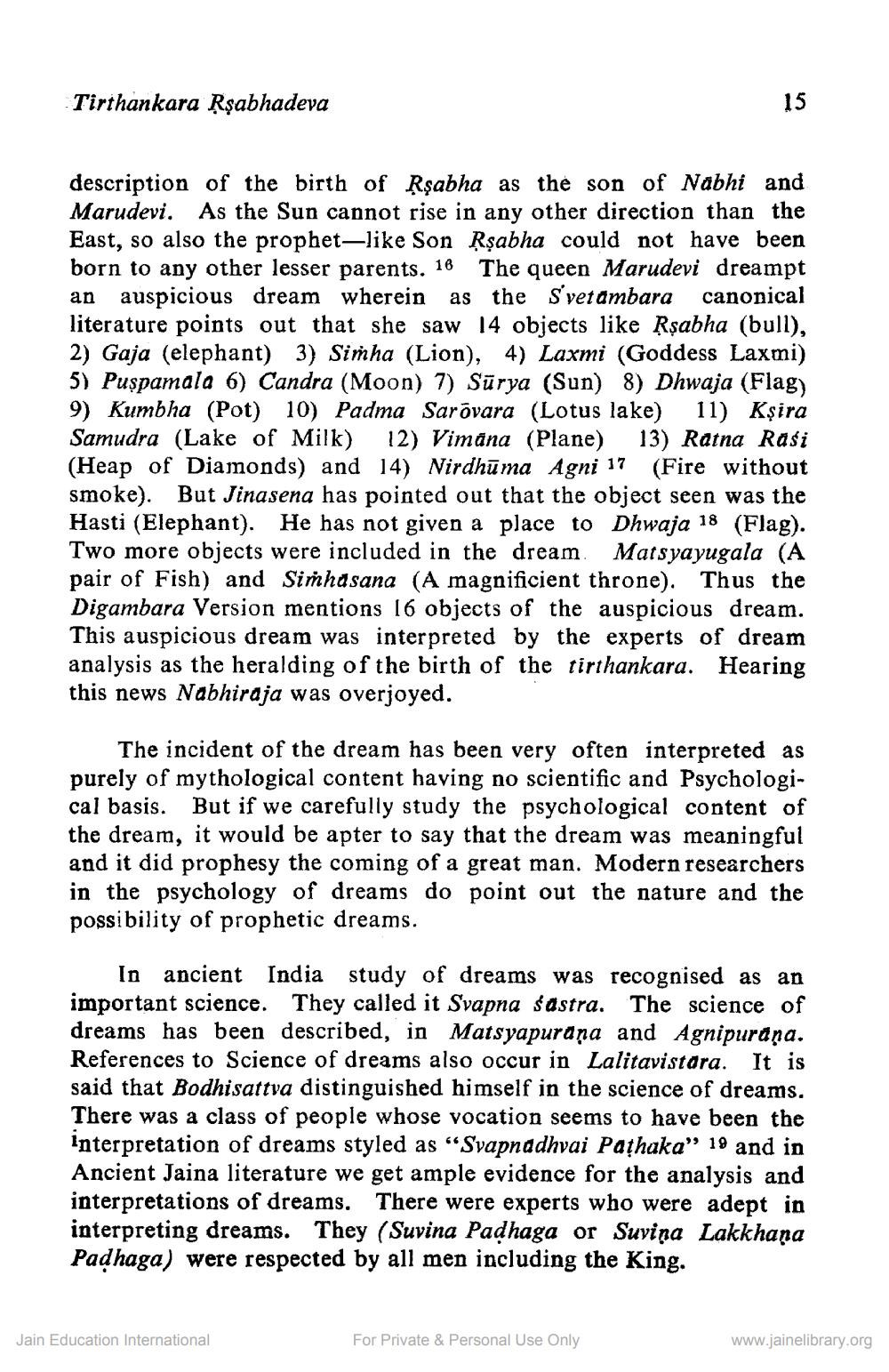________________
Tirthankara Rşabhadeva
15
description of the birth of Rşabha as the son of Nabhi and Marudevi. As the Sun cannot rise in any other direction than the East, so also the prophet-like Son Rşabha could not have been born to any other lesser parents. 16 The queen Marudevi dreampt an auspicious dream wherein as the Svetambara canonical literature points out that she saw 14 objects like Rşabha (bull), 2) Gaja (elephant) 3) Simha (Lion), 4) Laxmi (Goddess Laxmi) 5) Puspamala 6) Candra (Moon) 7) Sūrya (Sun) 8) Dhwaja (Flag) 9) Kumbha (Pot) 10) Padma Sarovara (Lotus lake) 11) Kșira Samudra (Lake of Milk) 12) Vimana (Plane) 13) Ratna Rasi (Heap of Diamonds) and 14) Nirdhūma Agni 17 (Fire without smoke). But Jinasena has pointed out that the object seen was the Hasti (Elephant). He has not given a place to Dhwaja 18 (Flag). Two more objects were included in the dream Matsyayugala (A pair of Fish) and Simhasana (A magnificient throne). Thus the Digambara Version mentions 16 objects of the auspicious dream. This auspicious dream was interpreted by the experts of dream analysis as the heralding of the birth of the tirthankara. Hearing this news Nabhiraja was overjoyed.
The incident of the dream has been very often interpreted as purely of mythological content having no scientific and Psychological basis. But if we carefully study the psychological content of the dream, it would be apter to say that the dream was meaningful and it did prophesy the coming of a great man. Modern researchers in the psychology of dreams do point out the nature and the possibility of prophetic dreams.
In ancient India study of dreams was recognised as an important science. They called it Svapna sastra. The science of dreams has been described, in Matsyapurana and Agnipurana. References to Science of dreams also occur in Lalitavistora. It is said that Bodhisattva distinguished himself in the science of dreams. There was a class of people whose vocation seems to have been the interpretation of dreams styled as “Svapnadhvai Pațhaka" 19 and in Ancient Jaina literature we get ample evidence for the analysis and interpretations of dreams. There were experts who were adept in interpreting dreams. They (Suvina Padhaga or Suvina Lakkhana Padhaga) were respected by all men including the King.
Jain Education International
For Private & Personal Use Only
www.jainelibrary.org




